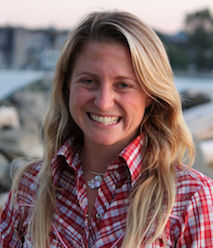Navigating Tipping Points and Transformation in Coupled Human-Ocean Systems

Anne Salomon
Simon Frazer University, British Columbia, Canada - aks21@sfu.ca
(Seminar in English)
Ecological surprises challenge science and society. While emerging evidence points to the existence of tipping points across a variety of ecosystems worldwide, unraveling the mechanisms governing their behavior is difficult because it requires understanding ecological and social phenomena that are linked and occur on very different spatial and temporal scales. By way of 3 case studies, I will discuss key characteristics of coupled human-ocean systems, factors that confer their resilience and those that aid in their transformation.
First, research on the recovery of keystone predation processes in kelp forests has revealed evidence of abrupt changes, nonlinear trophic dynamics and the alteration of reef-wide community niches. Occupational multiplicity, experimentation and knowledge exchange offer mechanisms by which to cope with these sudden shifts.
Second, recent evidence reveals that prehistoric clam gardens, intertidal rock walls built by indigenous people of the northeastern Pacific during the Holocene, at least doubled clam production. In combination with a diversity of resource use and governance protocols, this ancient form of mariculture enhanced the resilience of ancient food systems and offer insights on doing so today.
Finally, by assessing change in the social and ecological dimensions of the Pacific herring fishery in British Columbia through 3 governance eras, we were able to pin point opportunities and barriers for governance transformation. Collectively, these case studies reveal that a diverse portfolio of management approaches, polycentric governance systems, and learning platforms offer fruitful ways to enable adaptation and transformation in coupled human-ocean systems.
Recent publications:
Jackley, J., L. Gardner, A. Djunaedi, A.K. Salomon*. 2016 Ancient clam gardens, traditional management portfolios, and the resilience of coupled human-ocean systems. Ecology and Society.
Green, S.J., K. Demes, M. Arbeider, W.J. Palen, A.K. Salomon, T.D. Sisk, M. Webster, M. E. Ryan. Oil sands and the marine environment: Current knowledge and future challenges. Accepted with revisions. Frontier in Ecology & Environment.
Stevenson, C.F., K.W. Demes, A.K. Salomon. 2016. Accounting for size-specific predation improves our ability to predict the strength of a trophic cascade. Ecology and Evolution.
Salomon, A.K., B.J. Wilson, E. White, N. Tanape Sr., T. M. Happynook. 2015. First Nations perspectives on sea otter conservation in British Columbia and Alaska; Insights into coupled human-ocean systems. In Sea Otter Conservation. Eds: S. Larson, G. VanBlaricom and J. Bodkin. Elsevier.
Jean-Louis Martin : jean-louis.martin@cefe.cnrs.fr
Contact du Comité SEEM: seem@services.cnrs.fr. Contact du Labex CEMEB: gestion.cemeb@univ-montp2.fr


